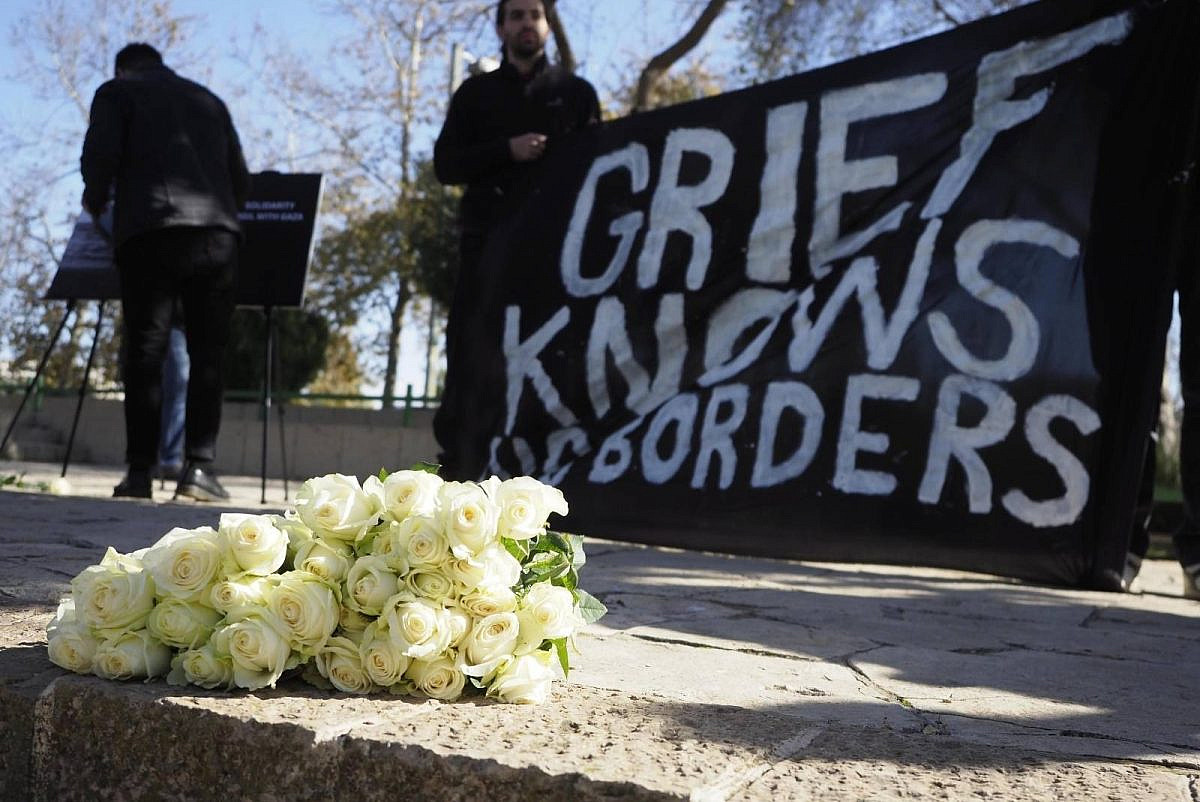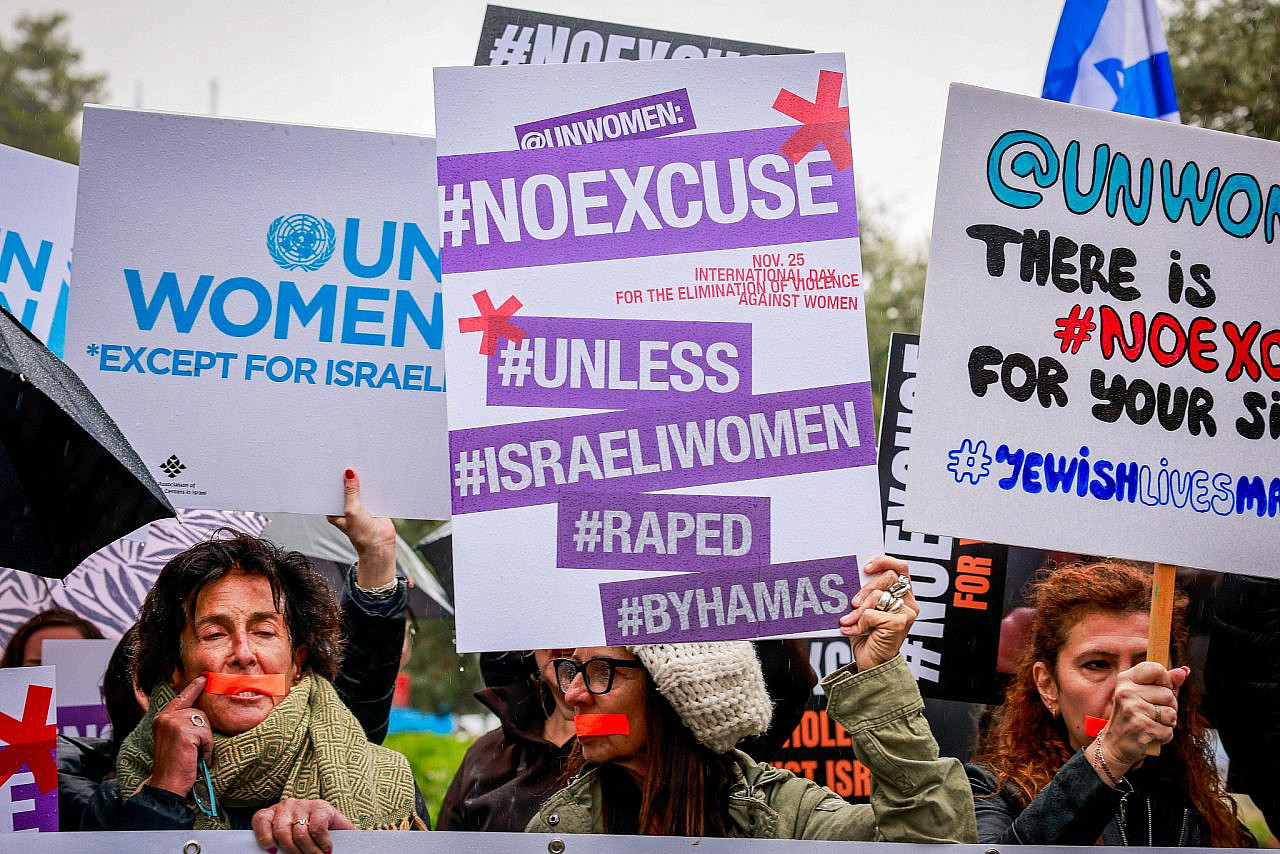The two most important struggles of my life are the fight against gender-based violence and the fight against Israeli occupation. I have always understood these struggles to be inextricably linked, both of them striving for liberation and equality for oppressed groups: women and Palestinians. But for the first time, it feels like those two worlds are clashing.
Since the onset of the war, we have all been pushed to choose a side — to support or condemn, to be for or against. This language, which we know so well from the toolbox of patriarchy, has also permeated feminist strongholds. Still in shock, Jewish and Palestinian feminists have been forced to take a stance: to believe or deny that Jewish women were victims of sexual violence during the Hamas-led October 7 assault on southern Israel. This question has been subsumed into the war of narratives in the aftermath of those attacks and amid Israel’s ongoing bombardment of the Gaza Strip.
I believe that gender-based crimes occurred on October 7. Even though we don’t know exactly what happened, or the form or scope of the sexual violence perpetrated that day — though we do have some indications — I believe that it happened because I have studied the history of women in war zones.
We know that systematic rape and sexual abuse against girls and women is a common phenomenon in war zones. Armed men, drunk on power, see women’s bodies as part of the battlefield. Those who attack civilians in order to murder, intimidate, control, and occupy, and those who take innocent people as hostages, are likely to go beyond putting a gun to a woman’s head.
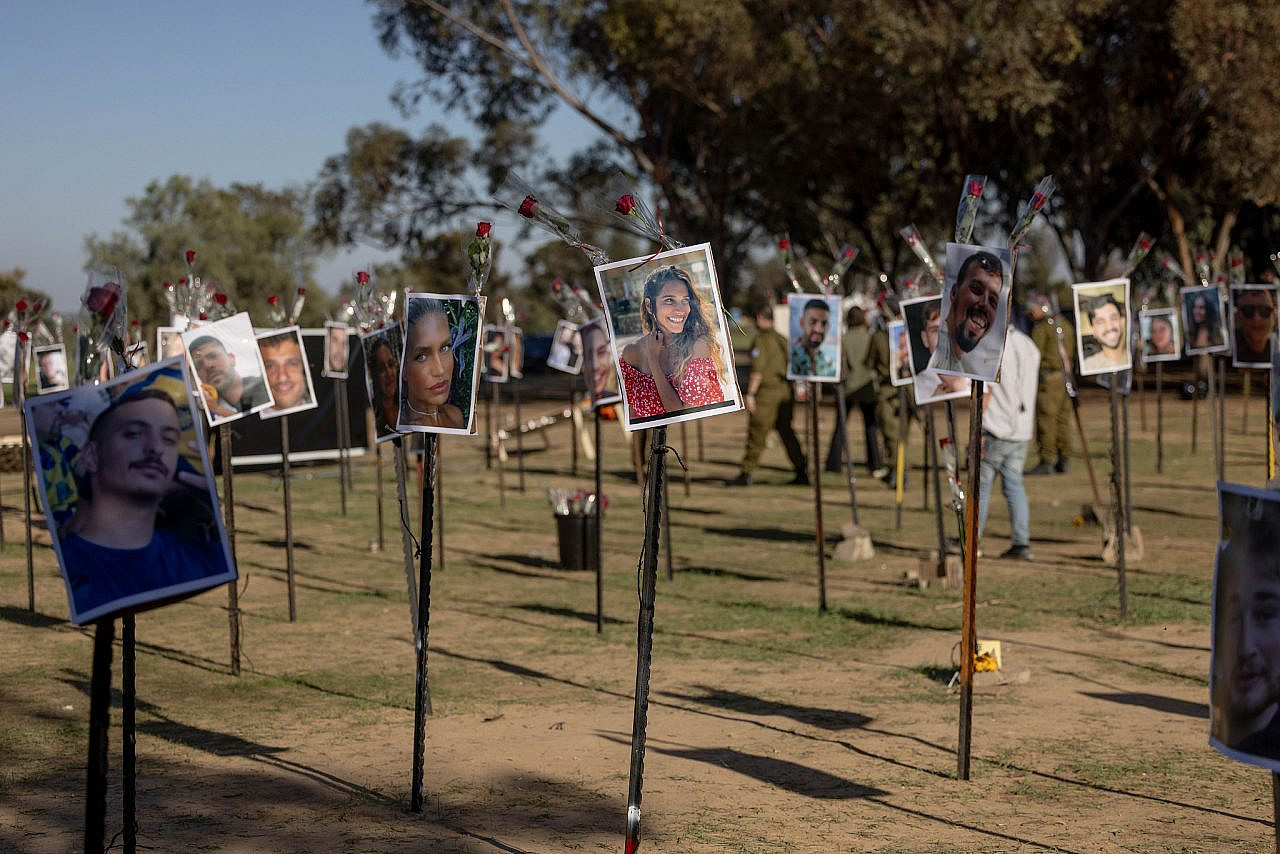
We know, for example, what happened in former Yugoslavia, when Serbian soldiers raped thousands of Bosnian women, whose stories only came to light when unwanted children were discovered in refugee camps. It took many months for the full picture of systematic rape to emerge.
We know what happened to women during fighting in the Democratic Republic of Congo; we know what Boko Haram soldiers did to girls in North Africa; and we know what British and American soldiers did to women in Iraq. We know what happened to Yazidi women who were taken captive by ISIS; we know about the sexual slavery Syrian women and girls were subjected to during the war; and we know that indigenous women in Canada were raped and murdered in forests.
Similar horrors have also been perpetrated against women in Algeria, Myanmar, Darfur, and Rwanda. And yes, here in this land, too, there are horror stories of sexual violence against Palestinian women during the Nakba. Those crimes weren’t photographed, documented, or investigated, and only the stories of the survivors – our grandmothers – remain.
The historical and geographical prevalence of sexual violence in no way diminishes the trauma and pain experienced by Israeli women or the solidarity we must show with them; rather, it emphasizes why their testimonies should be taken seriously.
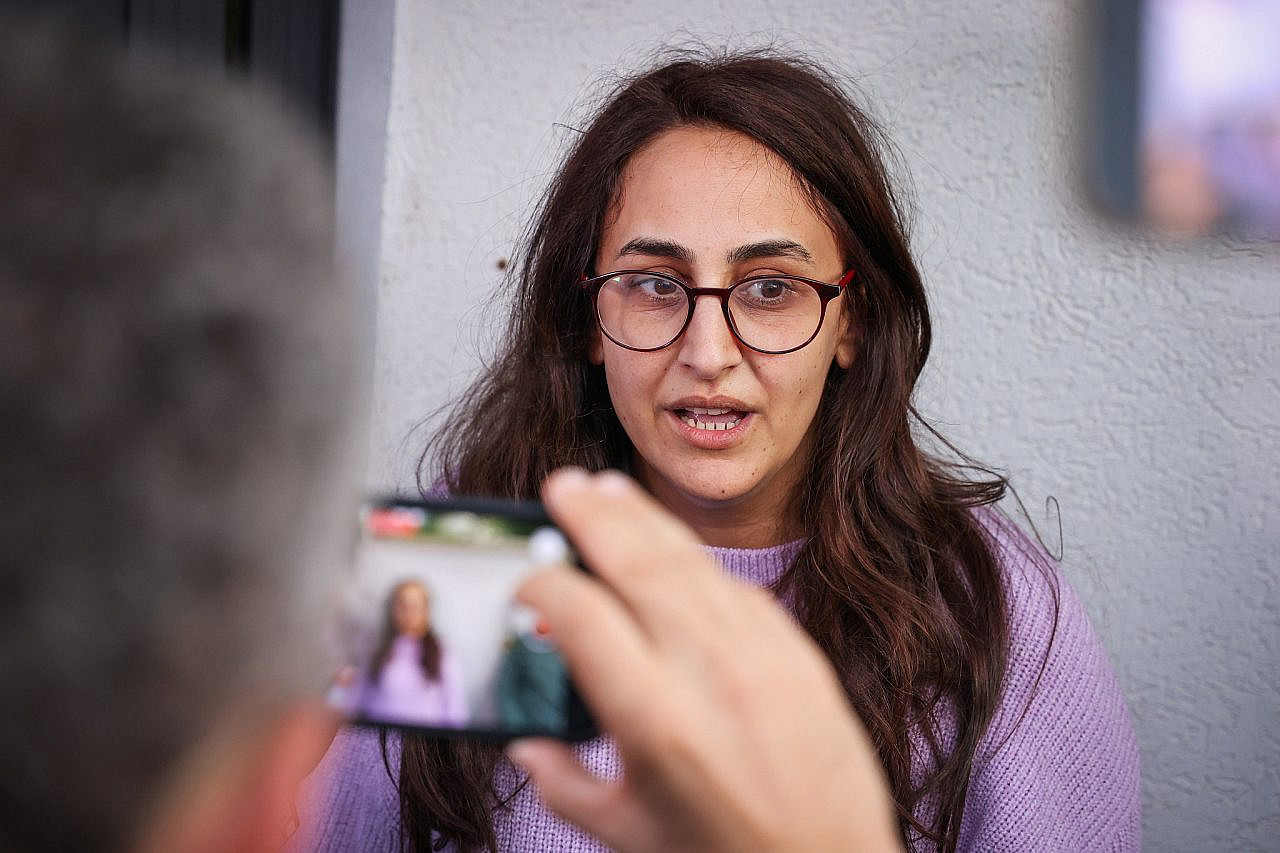
While it is important that a thorough investigation be carried out, we must remember that stories of gender-based crimes in war zones generally come to light very slowly. It takes many survivors of sexual violence years, if not a lifetime, to be able to talk about what happened to them. Too often, however, patriarchy silences, diminishes, or denies the truth, and it is therefore crucial to say: we believe women.
And it is on the basis of these same feminist principles that we must also stand with the Palestinian women in Gaza facing untold suffering at the hands of the Israeli army since October 7. Our struggle for women’s liberation must not stop at either side of the Gaza fence.
Israeli feminism on the offensive
Asserting that international women’s groups have shown a lack of solidarity with Israeli women after October 7, the mainstream Zionist feminist apparatus has gone on the offensive. It is not only targeting those who are silent, but also those who have dared to call for an external investigation into the gender-based crimes committed on October 7, decrying them as racists who have taken the side of the Palestinians and abandoned Israeli women.
The central target of this rhetoric has been UN Women, which Israeli feminist organizations have accused of denying sexual violence against Israeli women — a product, of course, of the UN’s “antisemitism.” The truth is more straightforward: that UN Women, like every organization belonging to the colossal dinosaur that is the UN, works very, very slowly.
UN Women should, indeed, have responded quicker to reports of sexual violence on October 7. Its first statement, published on Oct. 13, was bland and vague, including a call to stop the fighting and to prevent harm to innocent people, especially women and children. A second statement, published on Dec. 1, went further: it expressed alarm at “numerous accounts of gender-based atrocities and sexual violence during those attacks,” and noted that the organization is supporting the wider UN commission of inquiry into war crimes on both sides, including sexual violence.
Demanding that the horrors of October 7 be investigated and documented, including through the collection of survivor testimonies, does not diminish the severity of what occurred. Nor does attacking the global feminist movement reflect more vigorous solidarity with the victims. On the contrary, it puts feminists in a place of defensiveness and hesitancy and unnecessarily demands a loyalty test of the feminist values of sisterhood, the commitment to the liberation of all women regardless of race or nationality, and the obligation to support and preserve the dignity of victims.
Moreover, much of this rhetoric totally erases Israel’s bombardment of Gaza since October 7, which has had appalling impacts on the lives of Palestinian women in the Strip. Tens of thousands of women have been killed or wounded, their children dismembered, and their premature babies left without oxygen. Women have been giving birth in tents, breastfeeding and menstruating without access to clean water, hygiene products, privacy, or clean clothing.
These numbers and images don’t reach women in Israel, but the rest of the world is seeing what’s happening and must also care about the feminist angle of Israel’s assault on Gaza. Today, the balance of blood and horror leans toward the Palestinian side; this cannot be ignored, but nor should the suffering of women in Israel and Gaza be a competition.
Our fight must continue together
It would be much easier for me to immerse myself in videos of women being killed in Gaza and, at least until the end of the war, to be a sharp Palestinian and a blurry feminist. In that regard, I can understand the Jewish women for whom it was easier to return to their own national camp and join the ranks supporting the war. But turning inward at this time betrays the feminist values we have fought for together over so many years and ultimately harms the well-being of Israeli and Palestinian women alike.
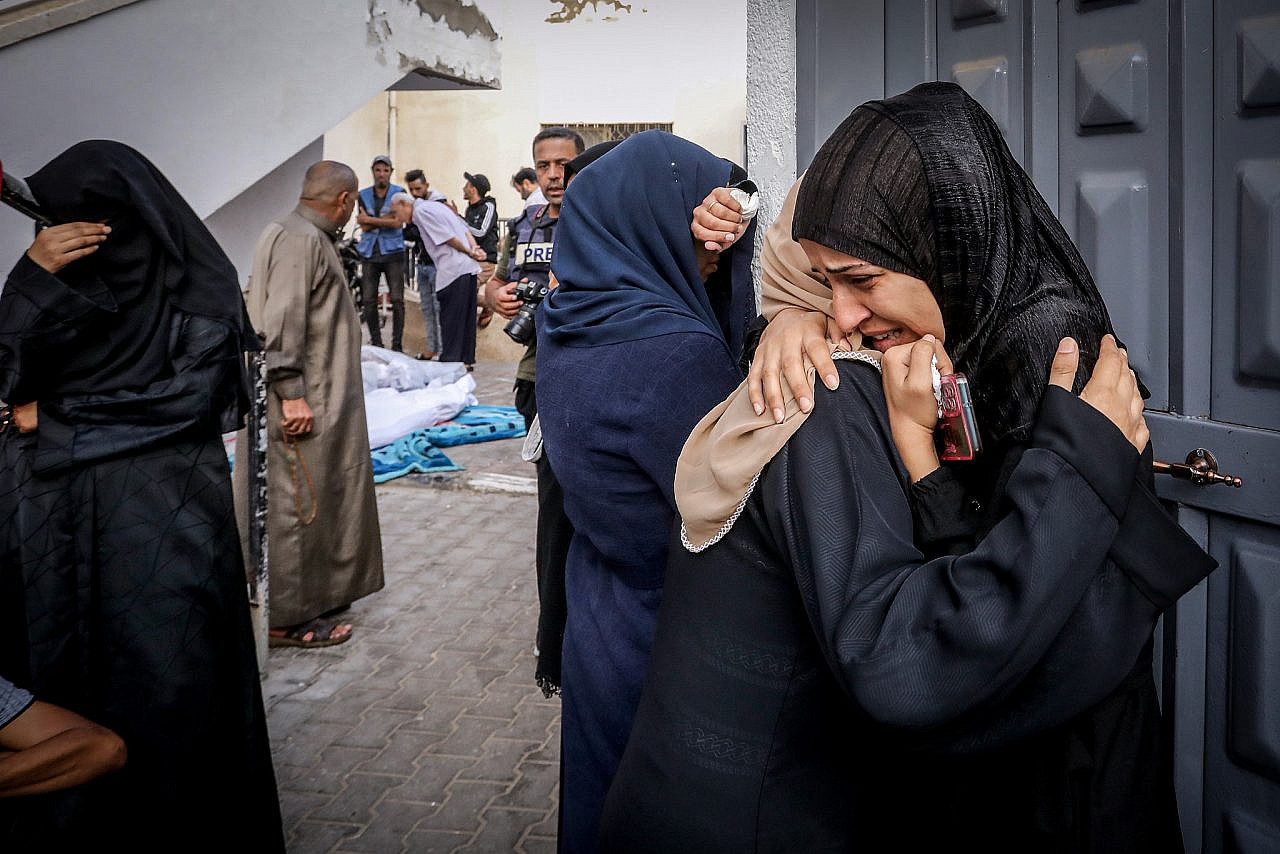
Five years ago, I was part of a group of Palestinian and Jewish feminists who partnered together to fight against plans to make it easier to receive a gun license in Israel, which we knew would lead to more domestic abuse and violence against women. That reform was proposed by Gilad Erdan, who at the time was Israel’s public security minister and now represents Israel at the UN. Sadly, some Israeli feminists now see Erdan as a partner in their struggle because of the war he is waging against UN Women in the wake of October 7.
Similarly, we cannot view Prime Minister Benjamin Netanyahu, who has harmed the lives of Israeli and Palestinian women in more ways than one can count, as a partner just because he proclaims to the world: “Where are you? You are being silent because they are Jewish women.”
As a Palestinian feminist, I stand with my Jewish feminist colleagues and partners at this deeply distressing time, and I expect them to also stand with me and the cause of Palestinian feminism as Israel slaughters our sisters in Gaza. I expect them to have the courage to stand up and call for an immediate ceasefire, which will save the lives of countless mothers and children who will otherwise be killed or wounded.
The struggle against militarism and militarization has for years been a shared struggle among Jewish and Palestinian feminists. Right now, that struggle is more important than ever.
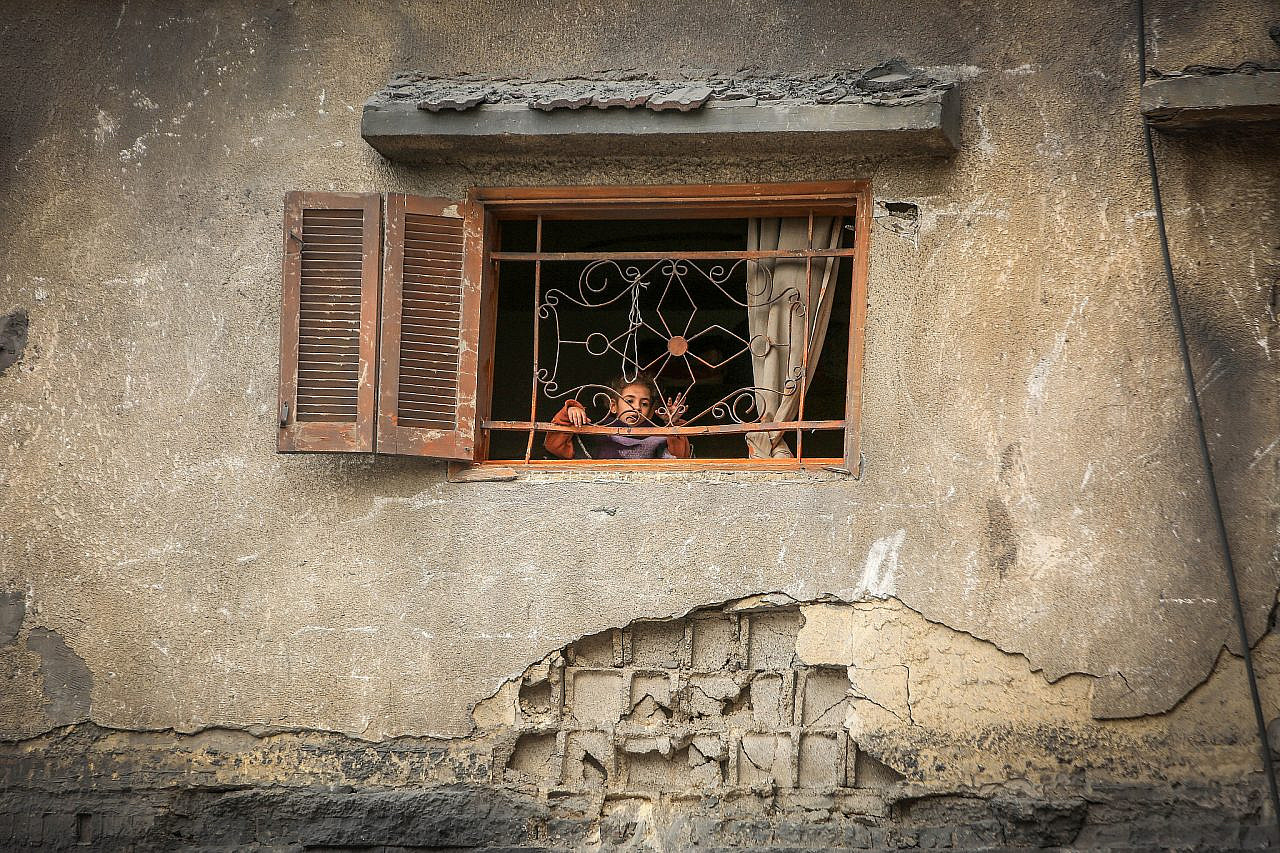
Just as I do not deny the experiences of Israeli women, I expect Jewish feminists and the rest of the world to recognize the effects of Israel’s longstanding gender-based violence against Palestinian women: sexual violence by soldiers at checkpoints; abuse of female prisoners; and the ways in which Israeli soldiers in Gaza are currently degrading Palestinian women even in their absence, taking pleasure in rifling through their intimate belongings after they have been forcibly displaced from their homes.
I am proud of my friends in Palestinian women’s organizations and the statement they published, which I also signed, which stated clearly: “Our firm stance against sexual assaults, harassment, and rape remains unwavering, supporting every woman who speaks out, regardless of nationality, religion, or ethnicity.”
Most read on +972
“We don’t question reports from Israeli organizations combating sexual assaults against Israeli women regarding the events of October 7,” the statement continued. “In light of this, we call upon … those active in women’s organizations in Israel who raised their voices against the sexual assault [endured] on October 7 to boldly condemn all violations, including killings, demolitions, and displacements occurring in the relentless war against the Palestinian people, particularly affecting women and children in Gaza.”
Sexual assault is not a matter of political gain. Our struggles as Palestinian and Jewish feminists are intertwined, and must include opposing occupation, racism, discrimination, patriarchy, and fundamentalism at all times and in all places. We will not succeed if we are divided; our fight must continue together.
A version of this article was first published in Hebrew on Local Call. Read it here.


